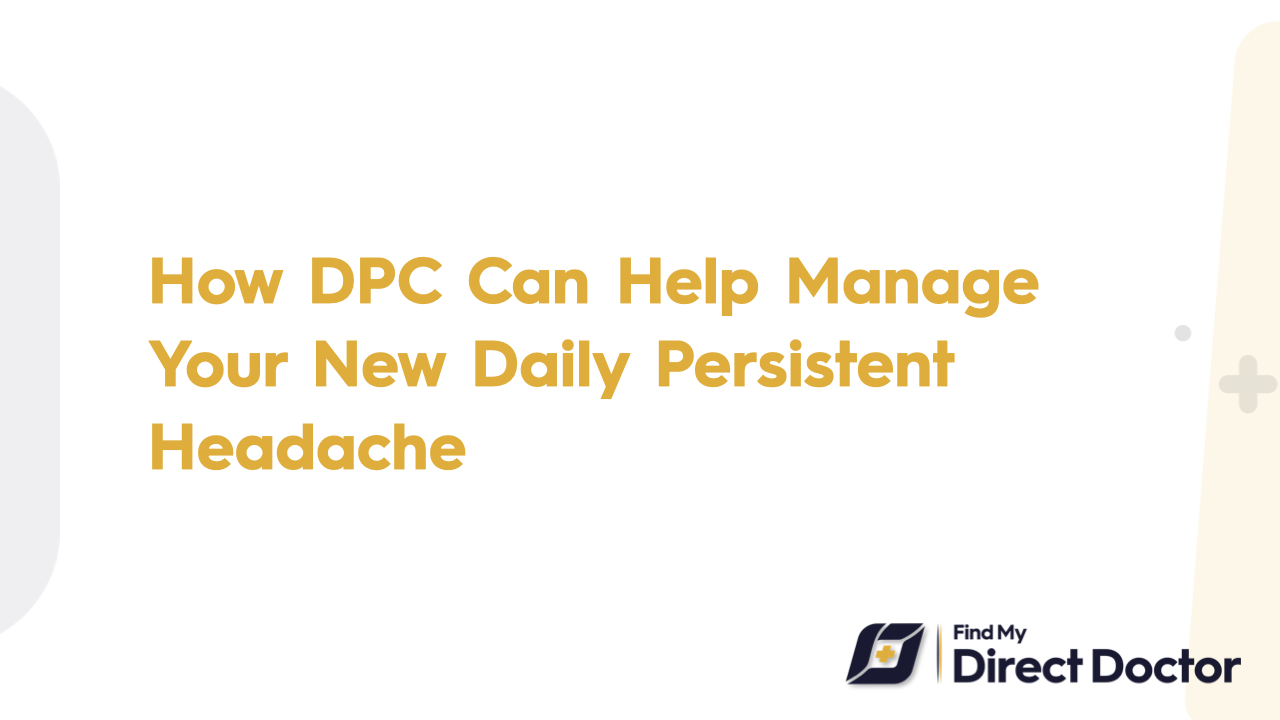



A headache that starts abruptly and lasts for more than three months every day is known as New Daily Persistent Headache (NDPH). It is characterized by a persistent, everyday headache that varies in intensity. Other symptoms include light and sound sensitivity, nausea, and trouble focusing. Although the precise etiology of NDPH is frequently unknown, infections, trauma, and other illnesses can all contribute to its development. In contrast to tension-type headaches or migraines, NDPH usually does not vary in frequency or intensity and can be a crippling ailment that lowers a person's quality of life.

Because Direct Primary treatment (DPC) prioritizes patient-centered treatment and makes healthcare providers easily accessible, it offers the best method for treating New Daily Persistent Headache. Patients can have regular consultations in a DPC setting to keep an eye on their condition and modify their treatment plans as necessary. DPC enables a more individualized treatment approach that includes lifestyle changes, medication management, and alternative therapies because NDPH can be complicated and challenging to treat. Patients are more likely to get the ongoing care and assistance required to properly manage their headaches when they use DPC.
The opportunity to establish a solid, long-lasting relationship with a medical professional who is aware of the intricacies of NDPH is one of the main advantages of DPC for patients with this illness. DPC makes certain that patients receive prompt follow-ups and discussions, enabling treatment regimens to be modified as needed. Because DPC practitioners may concentrate on the patient's general health and treat any underlying issues that might be causing the headaches, the model also encourages a more comprehensive approach to therapy. The patient's life is less affected by NDPH thanks to this ongoing and aggressive care.
The key to treating New Daily Persistent Headache in Direct Primary Care is individualized treatment. By using the DPC approach, medical professionals can customize treatment regimens according to each patient's unique symptoms, triggers, and medical background. More accurate management is made possible by this customized approach, whether it entails writing prescriptions, looking into physical therapy alternatives, or suggesting stress-reduction strategies. With the goal of reducing symptoms and enhancing general quality of life, DPC provides a thorough, patient-driven approach to managing NDPH through continuous communication and frequent check-ins.
Previous Post